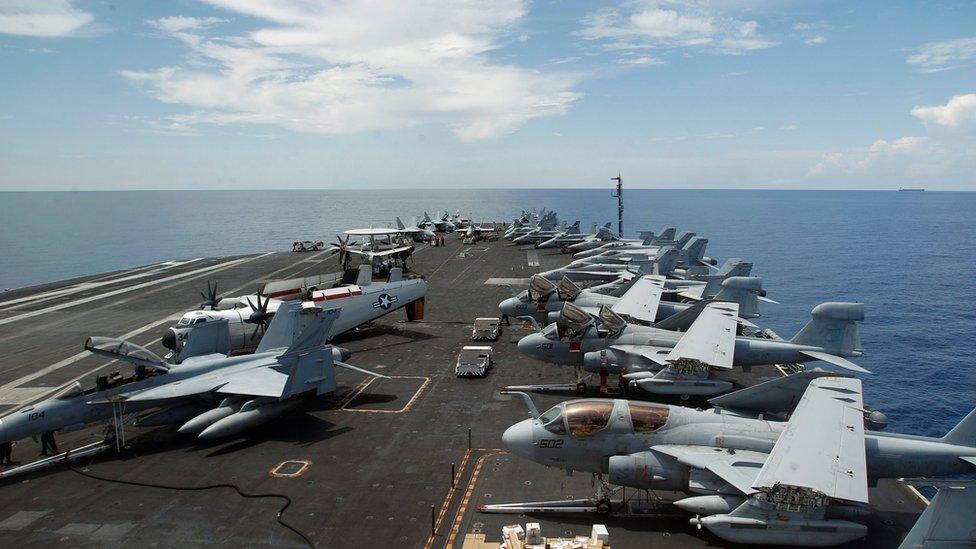South China Sea: Beijing accuses US of militarisation
- Published
Why is sovereignty of the islands disputed and how serious could the row get? Rupert Wingfield-Hayes explains
China has accused the US of militarising the disputed South China Sea through its air and naval patrols.
The accusation comes days after the US and Taiwan said China appeared to have deployed surface-to-air missiles on a contested island in the region.
Vietnam has called the reported move a "serious violation". The Philippines and Australia also expressed concern.
China dismissed the reports as "hype", but said it had the right under international law to defend itself.
Several nations claim territory in the resource-rich South China Sea, which is also an important shipping route.
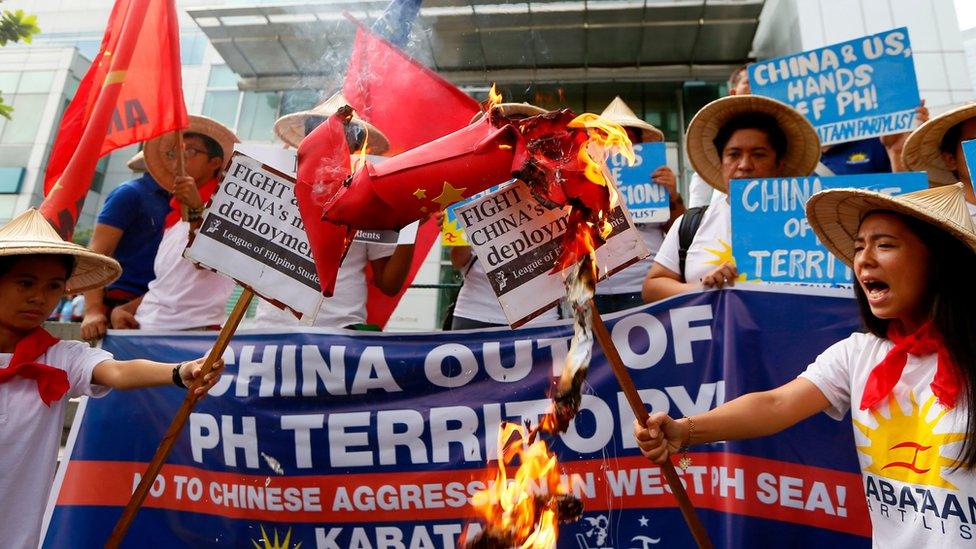
Protesters in the Philippines criticised China's apparent missile deployment
Taiwan and US officials say satellite images taken on 14 February indicate that China has deployed missiles on Woody or Yongxing Island in the Paracels.
The island is claimed by China, Taiwan and Vietnam.
US Secretary of State John Kerry said on Wednesday: "There is every evidence, every day, that there has been an increase of militarisation from one kind or another. It's a serious concern."
However, Chinese foreign ministry spokesman Hong Lei hit back on Friday, telling reporters that US air and naval patrols in the region were what had "escalated tensions" in the region.
"That's the real militarisation of the South China Sea," he added.
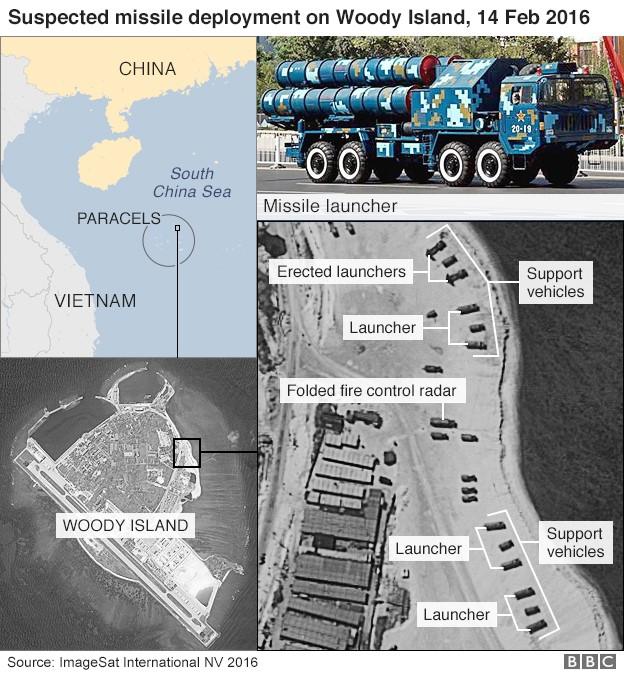
The US says it does not take sides on territorial disputes, but has previously sent B-52 bombers and a naval destroyer near the disputed islands.
It says it conducts such "freedom of navigation" operations to ensure access to key shipping and air routes.
On Friday, Vietnam said it had issued diplomatic notes to the UN Secretary General and the Chinese embassy to protest against China's apparent deployment of missiles on Woody Island.
"These are serious infringements of Vietnam's sovereignty over the Paracels," foreign ministry spokesman Le Hai Binh said.
The Philippines also said it was "gravely concerned", and that China's actions would "aggravate the already tense situation".
Meanwhile, Australian Prime Minister Malcolm Turnbull said China should avoid "falling into the Thucydides Trap", where "a rising power creates anxiety among other powers such that conflict occurs".

What is the South China Sea dispute?

Rival countries have wrangled over territory in the South China Sea for centuries, but tension has steadily increased in recent years.
Its islets and waters are claimed in part or in whole by Taiwan, China, Vietnam, the Philippines, Malaysia and Brunei.
China has backed its expansive claims with island-building and naval patrols, while the US says it opposes restrictions on freedom of navigation and unlawful sovereignty claims - by all sides, but seen by many as aimed at China.
The frictions have sparked concern that the area is becoming a flashpoint with global consequences.

- Published28 January 2016
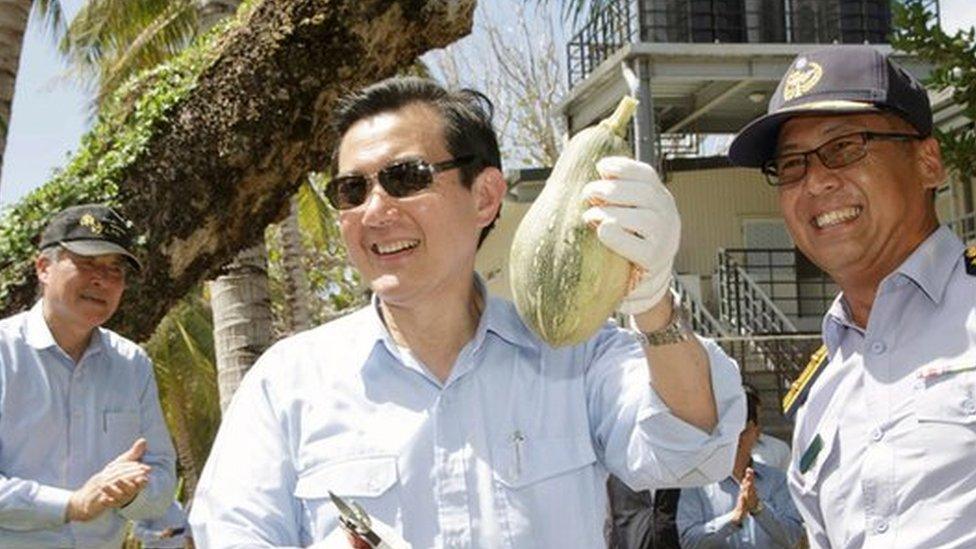
- Published17 February 2016
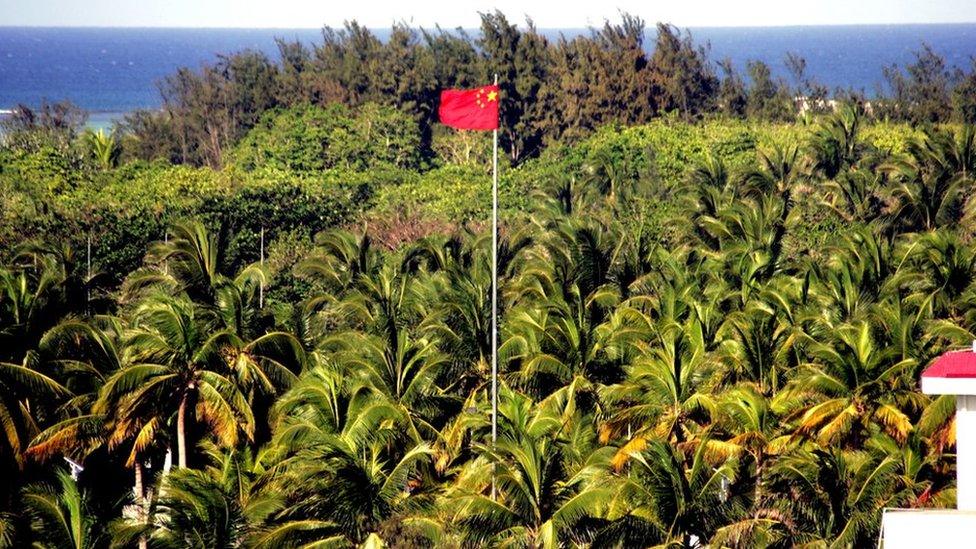
- Published14 December 2015
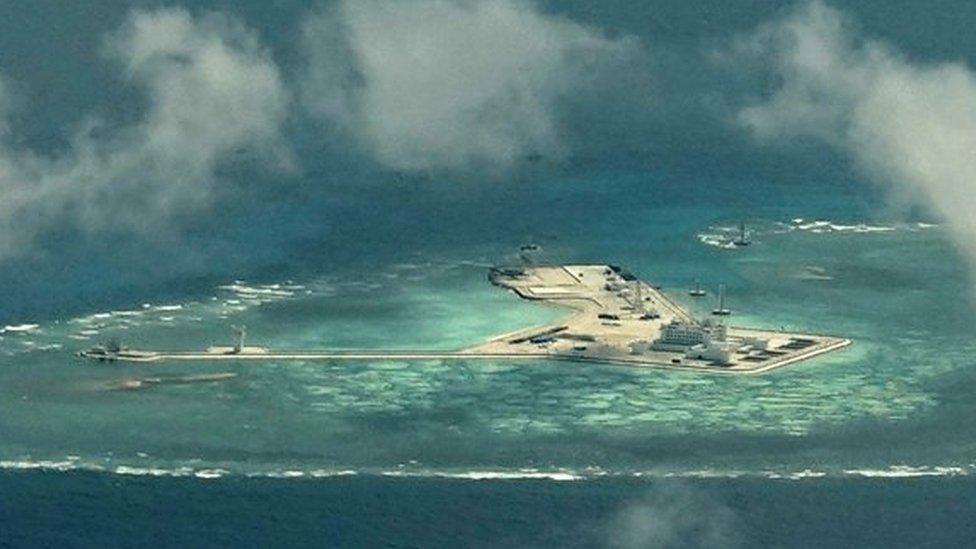
- Published7 July 2023
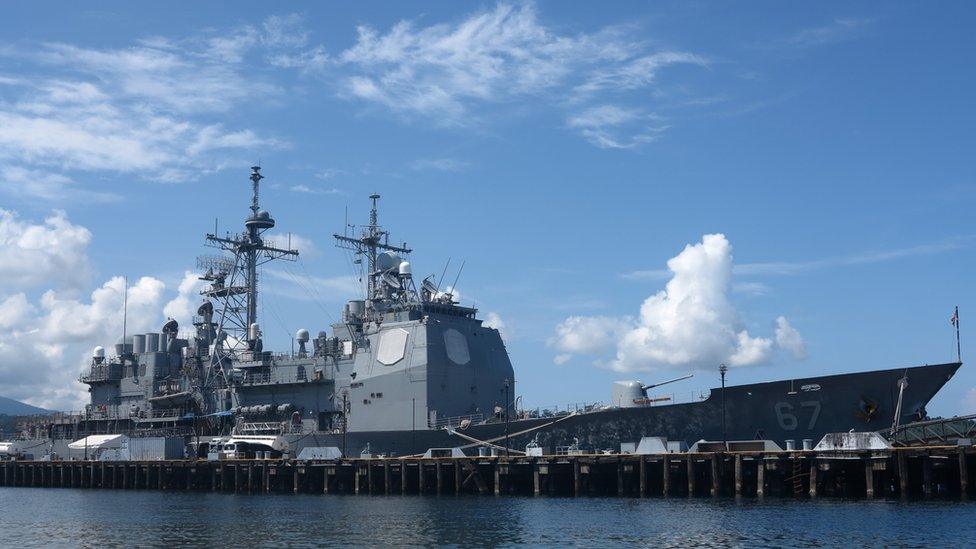
- Published30 January 2016
